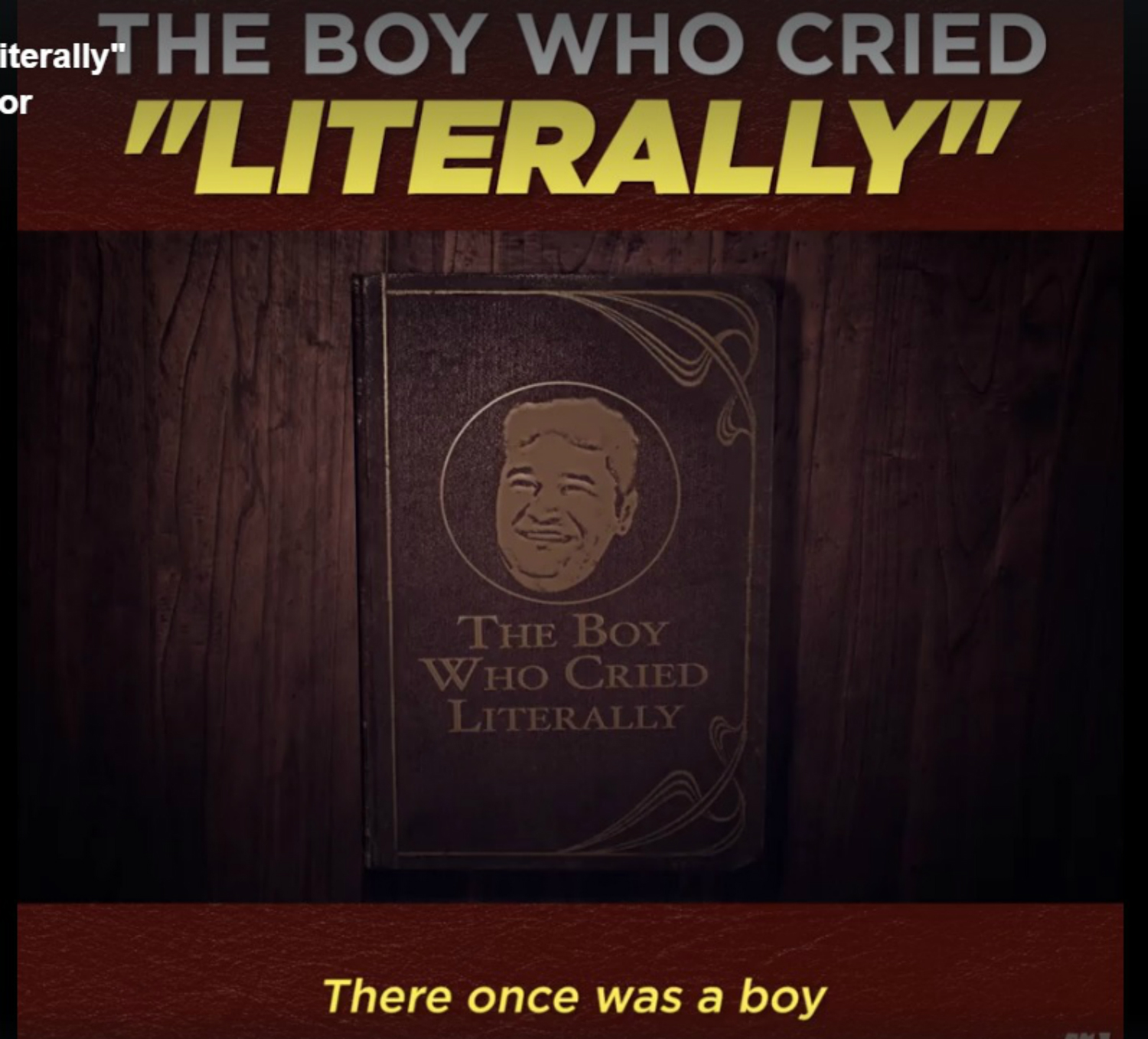The boy who cried Literally

The boy who cried Literally — or how we literally overuse and misuse “literally”: Just like “like,” the other (figurative) stab in the back of the English language that had been ticking us off these days (years) is the excessive misuse of the word literally. We’re looking at you. You know who you are. In reality we’re all (again, quite figuratively speaking) probably guilty of this. So much so, it’s got scions of pop culture like HuffPost and others like the poor editors of the Independent ranking the word as one of the English language’s most overused words and phrases. This one writer at the Harvard Crimson took off on a whole diatribe about it. To her credit, she literally traced some examples going back to 19th century literature, and even nailed the great F. Scott Fitzgerald for his description of Jay Gatsby: “He literally glowed?” Her and all the others complaining have put the word in the most endangered words list, as it has clearly begun to lose its meaning from a cultural standpoint.
We’re not going to insult you like the rest and run a Webster Dictionary refresher of the definition of the word. We’ll only leave you with this warning from College Humor (watch, runtime: 2:08) on the very real dangers of this misuse. Just like the boy who cried wolf, no one came to help to him when he was literally in danger. The moral of the story: if you keep using “literally” when you mean “figuratively,” you will be stabbed by a vagrant and die. Think about that, if the sanctity of words doesn’t concern you.